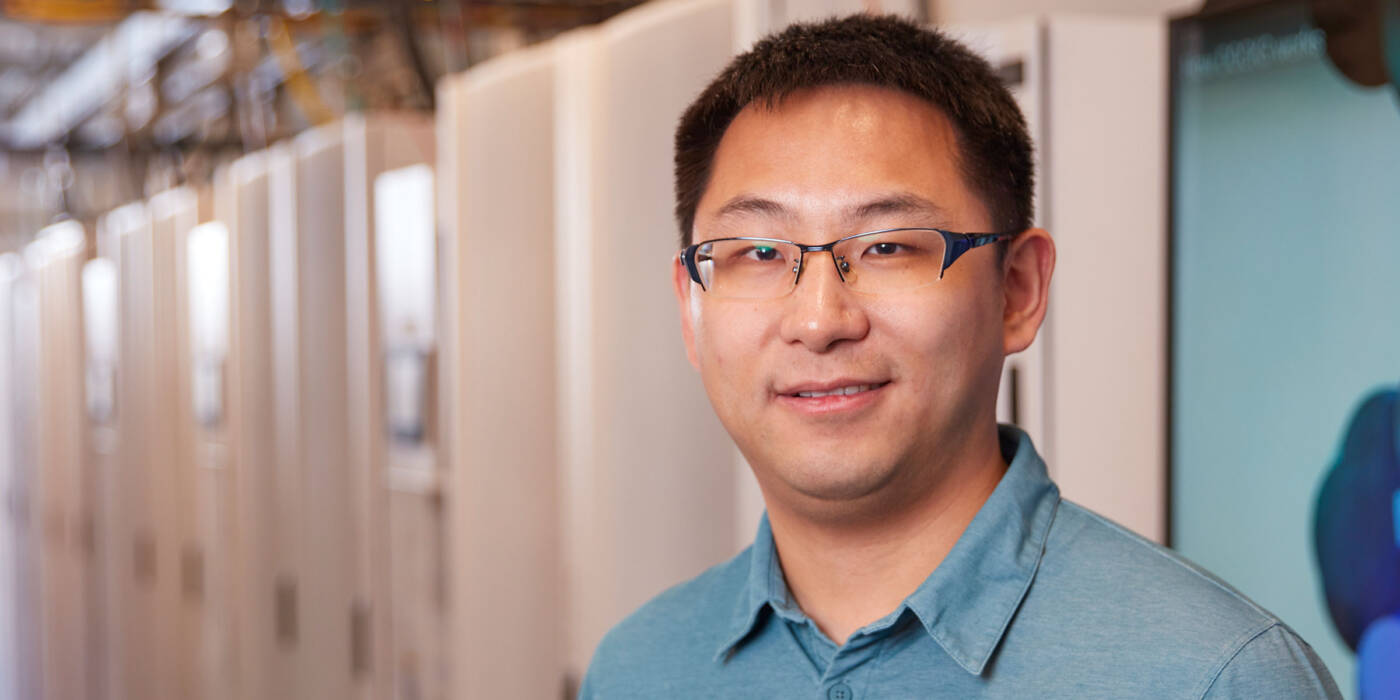Jiankun Lyu, Ph.D.
Assistant Professor
Having a better understanding of the molecular recognitions between small molecule ligands and their biological targets is crucial for designing and developing new drugs and therapies. The Lyu lab approaches this by studying these recognition patterns and using them to develop computer programs for screening vast chemical libraries. The goal is to discover novel ligands that illuminate biological processes and help assess emerging therapeutic targets.
The field of drug discovery is a highly intriguing area of research due to the estimated 1063 drug-like molecules that may exist. Despite this overwhelming number, screenings of large libraries of 105–106 molecules have been successful in finding bioactive ones. One reason for this success is the plastic nature of molecular recognition patterns, which opens the door to new drug development. The Lyu lab capitalizes on this plasticity through a method called molecular docking, which selects the best-fitting molecules from large virtual libraries for synthesis and testing.
After decades of slow growth in the development of virtual chemical libraries, the advancement of make-on-demand synthesis has enabled their rapid expansion to include billions of molecules. Lyu and his colleagues have taken advantage of this expansion by developing an ultra-large library docking platform, which has been used to screen millions of make-on-demand molecules against seven biological targets and discover novel, potent, and selective ligands. The ultra-large library docking platform represents a huge expansion of the available molecules and chemotypes for chemical biology and drug discovery, readily accessible to the research community.
However, the growing number of commercially available molecules makes it increasingly difficult to screen every molecule in the library, which may now contain tens of billions of molecules. To address this challenge, the Lyu lab is developing new algorithms to efficiently screen larger libraries and answer a key question in ligand discovery: Does the size of the library impact the likelihood of discovering novel and potent ligands? The lab will conduct experimental tests on understudied proteins to answer this question.
In addition, the lab is pushing the boundaries of chemogenetics by identifying new chemotypes. In recent years, the combination of small molecules and engineered proteins has created powerful tools for biological study. However, only a limited range of chemotypes have been utilized as ligands. The Lyu lab is taking advantage of the vast expansion of available chemical space to uncover new chemotypes that can control engineered proteins. This has the potential to eliminate previous limitations in chemogenetic ligands and allow for broader in vivo use in biological studies. By incorporating ultra-large library screening and protein design, the Lyu lab is working to bring novel chemotypes to the field of chemogenetics.
Lyu is a faculty member in the David Rockefeller Graduate Program, the Tri-Institutional Ph.D. Program in Chemical Biology, and the Tri-Institutional Ph.D. Program in Computational Biology & Medicine.
